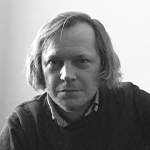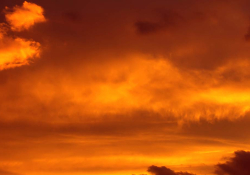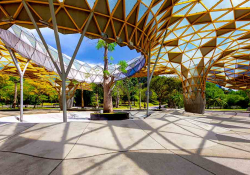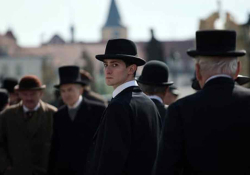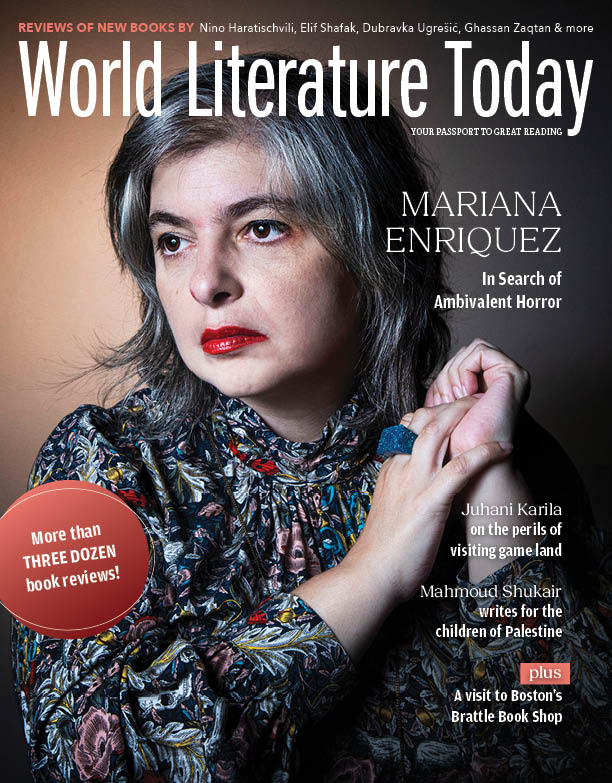Joseph Conrad’s Childhood and Russia’s War on Ukraine

Despite Berdichev, Ukraine, being Joseph Conrad’s ancestral home, and despite the fact he is arguably the most globally famous writer born on Ukrainian soil, few of its residents seem to know much about him. Oliver Raw investigated by visiting northern Ukraine, now in the throes of Russia’s invasion. Here, he explores the parallels between Conrad’s experiences of growing up under czarist oppression and Ukraine’s current struggles against a resurgent Russian imperialism.
In the town of Berdichev, in north-central Ukraine, the baroque towers of the Carmelite monastery rise up against sullen winter skies. Built in 1754, in what was then a province of the Poland-Lithuanian Commonwealth, it was abolished by the czarist authorities in 1866 and later used as a prison by the Bolsheviks. In the monastery grounds, with its ice-slicked cobbles and pack of homeless dogs, is a small museum dedicated to the life of one Józef Teodor Konrad Korzeniowski.
Born on December 3, 1857, and baptized at this very monastery, he was an ethnic Pole at a time when Poland, as a nation, no longer existed. His father, Apollo Korzeniowski, was a journalist, poet, and translator of Western literature who was active in the Polish independence movement. On the occasion of his son’s birth, he composed a poem, part of which reads:
Baby son, tell yourself
You are without land, without love,
Without country, without people,
While Poland—your Mother is entombed.
Born without a nation of his own, the child Korzeniowski would grow up to be a wanderer of sorts, sailing on British merchant ships throughout the world before settling in Canterbury, England, where he would become one of the most celebrated writers in modern literature. We know him today by his pen name, Joseph Conrad.
* * *
One notable exhibit at the museum is a fragment from the Otago, the barque Conrad commanded on voyages between Australia and Southeast Asia. It is on loan from the National Maritime Museum in Gdańsk, says Bogdan, who works at the monastery shop.
“When Russia invaded Ukraine two years ago, the museum director in Gdańsk called one of the friars,” he says. “He was panicking. He wanted to know that the fragment was safe.”
Bogdan, like Conrad, was born in Berdichev and is of Polish descent, as are an uncertain number of the town’s residents. Despite this, he claims no special affinity with Conrad, although he recalls having read one of his books. The one set in Africa, he says, when I ask him the title. The one they made into a film.
“Most people don’t think of him as Ukrainian,” he tells me. “He identified as a Pole throughout his life.”
Another resident of the town puts it slightly differently: “He was a foreigner here.”
It is an uncommon state of affairs that a man should be regarded as a foreigner in the land where he was born and where his ancestors have lived for two hundred years. Yet the history of Ukraine is uncommonly complex, a history that is unfolding today in tragic fashion.
It is an uncommon state of affairs that a man should be regarded as a foreigner in the land where he was born and where his ancestors have lived for two hundred years.
* * *
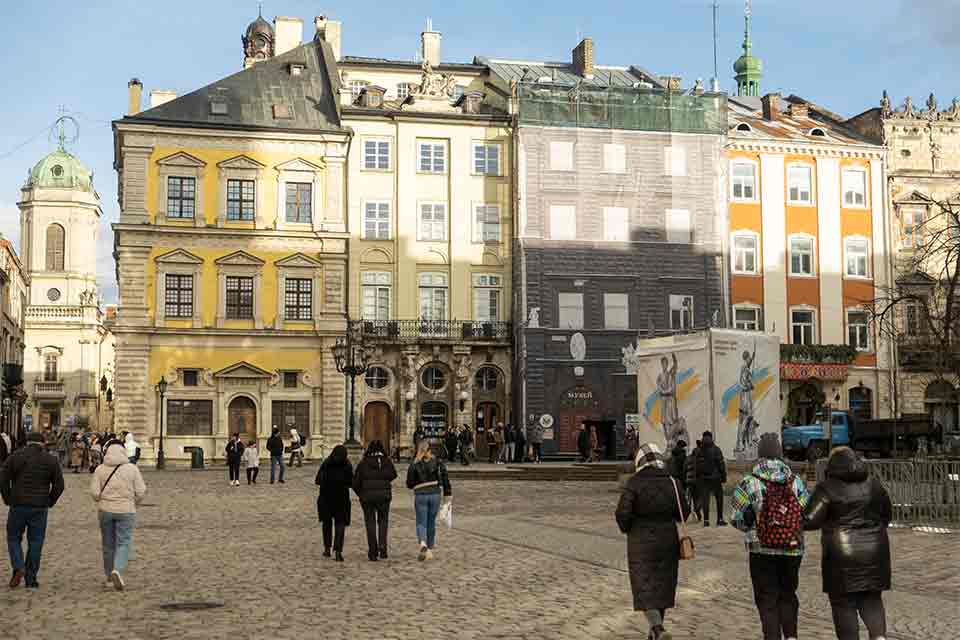
At the time of Conrad’s birth, Poland had been absent from the political map of Europe for sixty years, having been divided up in three separate partitions between Prussia, Austria, and Russia. Russia controlled the central and eastern Polish territories, comprising Ukraine, Belarus, and the Baltics. Its rule was marked by occasional uprisings, with each uprising followed by greater repression.
Like many of his contemporaries, Apollo Korzeniowski was dedicated to the cause of an independent Poland, often at the expense of his wife, Ewa (née Bobrowska), and only child. Such fervency ran in the family: his own father was a veteran of the Napoleonic Wars and formed a cavalry regiment to fight the Russians.
Berdichev, at that time, was an important trading center with one of the largest Jewish communities in the Russian Empire. A sizable number of its inhabitants were Ukrainian peasants, or Ruthenians as they were then known, to whose betterment Apollo was sympathetic. A minority, like the Korzeniowskis, were of the Polish land-owning class, the szlachta. Despite linguistic, cultural, and religious differences, what united these groups was their shared desire to free themselves from czarist oppression.
Today’s Berdichev is an unremarkable place, filled with Soviet-era housing blocks along with the odd prewar (as in pre–World War II) factory or civic building. At the time of my visit, the town’s center had been torn up and the antiquated water pipes were in the gradual process of being replaced. Apart from the Carmelite monastery, the other main place of note is the Jewish cemetery, where some thirty thousand men, women, and children lay in unkempt graves, many of them murdered by the Nazis.
Despite it being Conrad’s ancestral home, despite the fact he is arguably the most globally famous writer born on Ukrainian soil, few of its residents know much about him.
“Didn’t he marry Ewelina Hanska?” says the young female receptionist at my hotel, mistaking Conrad for Honoré de Balzac, who married a Polish noblewoman here.
There are no monuments to his memory, no shops selling souvenirs with his likeness. There is a street renamed after him, at least. It is the only thing the receptionist can tell me about him.
* * *
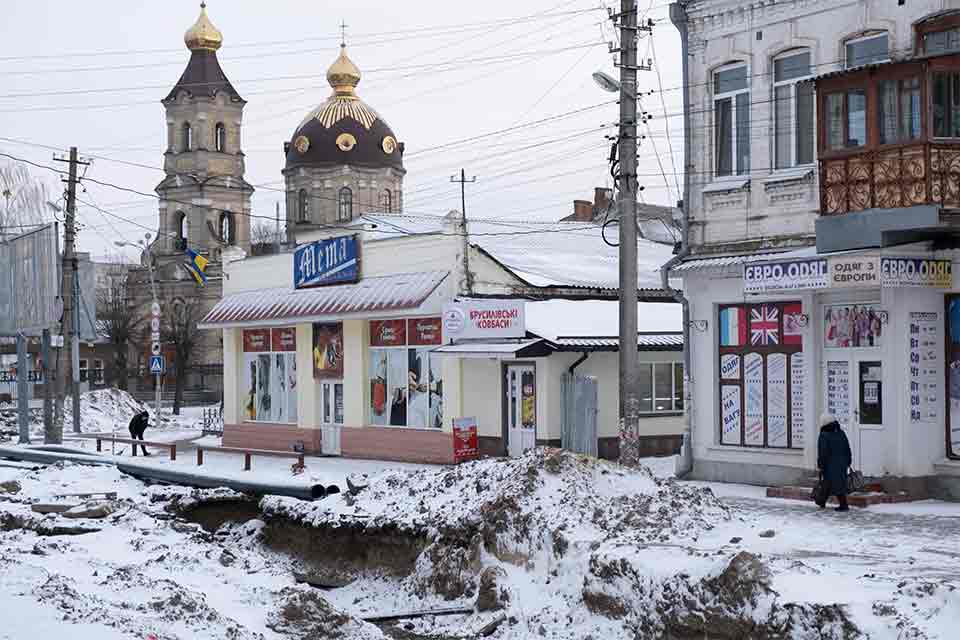
His maternal grandmother’s home survives, however, located in a village to the south. Here Conrad stayed with his mother, while his father was busy agitating in Warsaw.
It is a fifteen-minute taxi ride from Berdichev, past snow-dusted fields and red-brick homes surrounded by brown picket fences and frozen ponds where men sit fishing in the ice. Conrad would describe these lands in a memoir, A Personal Record, as a “kindly bread-giving land of low rounded ridges . . . with the black patches of timber nestling in the hollows.” Conrad wrote this in his fifties, many years after he returned to Ukraine on a visit. Yet it is here, in the countryside, that I get a fleeting sense of the man, of the landscapes he carried within him, if impressionistically, through his many travels.
His grandmother’s home lies tucked away within a copse of trees, where one can imagine Conrad played as a child, complaining about the mosquitoes in a letter to his father. The house now functions as a village school, my guide, Oleh, tells me, although the school is presently closed.
With its new cement cladding, the building conjures little. But then Conrad’s stay was brief, and in 1861 the family moved to Zhytomyr, further to the north, and then to Warsaw, where Apollo participated more fully in revolutionary circles. He was arrested later that year and imprisoned in the Warsaw Citadel for conspiring against the imperial authorities.
Sentenced to exile, the family spent three years in Volgograd, east of Moscow (“a swamp,” Apollo called it in a letter) before being transferred to Chernihiv, north of Kyiv, near the present-day border of Belarus.
* * *
At the start of the full-scale invasion in February 2022, Russian forces surrounded Chernihiv, frequently bombarding the center with shells and rockets. Roads leading out of the city were either destroyed or were sites of active combat. For three weeks its residents hid in bunkers, without electricity and heating, only venturing out, at great risk, for food.
Two years on and the scars are visible, with several destroyed or partially destroyed buildings, including the nineteenth-century Gothic-style children’s library, one of the city’s architectural treasures.
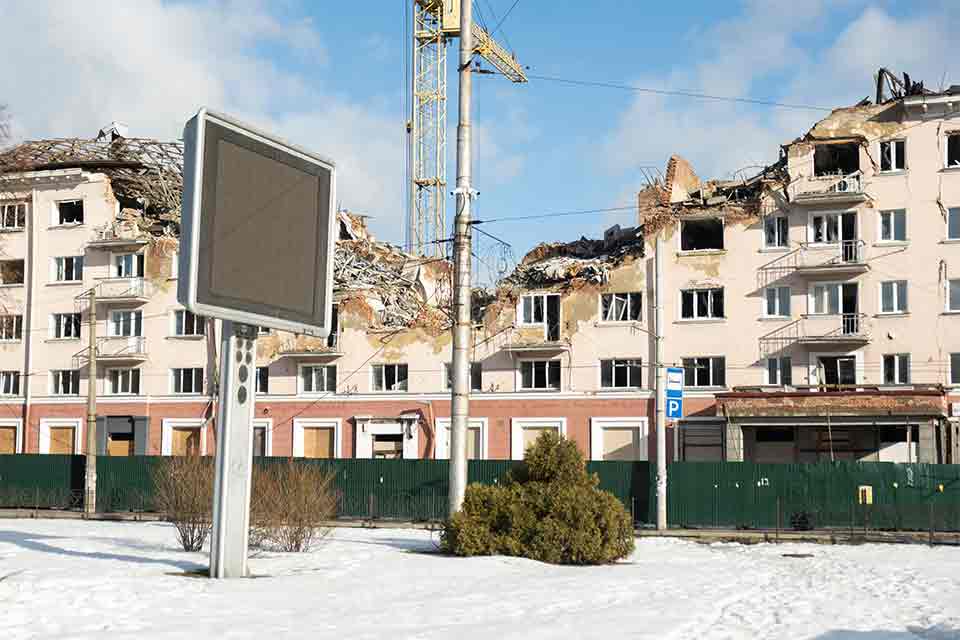
Conrad, were he alive today, would not be shocked by any of this.
Conrad, were he alive today, would not be shocked by any of this. He maintained a lifelong antipathy toward Russia, unsurprising given the tenor of his childhood experiences. In the opening pages of Under Western Eyes, perhaps his most autobiographical novel, the English narrator says: “In its pride of numbers, in its strange pretensions of sanctity, and in the secret readiness to abase itself in suffering, the spirit of Russia is the spirit of cynicism.” Elsewhere, in the essay “Autocracy and War,” written at the time of the Russo-Japanese War in 1905, Conrad observes: “Russia is nothing but the arbitrary will of an obscure Autocrat at the beginning and end of her organization.” This could apply as easily to Putin or Stalin as it did to Czar Nicholas II. Indeed, much in Russia remains unchanged, with political assassinations, forced deportations, and gulags—now “penal colonies”—still in vogue.
While the Korzeniowskis were stuck in Chernihiv, in 1863 a Polish uprising was violently repressed, leading to an exodus of Poles from the Russian Empire as well as the virtual extinction of Apollo and Ewa’s extended families.
“We Poles have suffered slaughter, conflagration, robbery, rape, and torture in the hands of Muscovy,” Apollo would write, castigating the powers of western Europe for their cowardice and naïveté toward Russia.
More tragedy was to follow. Three years into their exile, Ewa became gravely ill with tuberculosis. Pleas for transfer to a healthier climate were refused, and Ewa would die in April 1865 at the age of thirty-two. Conrad was just seven years old.
* * *
The church where Conrad’s mother is buried still stands, although it hasn’t functioned as a church in over a hundred years.
“When the Soviets came to power they closed it down,” says Father Blaze, Chernihiv’s parish priest, as we sit together in the parish hall of the new Roman Catholic Church. “The priest was sent into exile or executed. We’re not exactly sure. For seventy years there was no Catholic church here.”
Father Blaze is from Katowice, in southern Poland, and has a round face and a stubbly blond beard. At thirty-two, his youthful appearance is at odds with the responsibility of his mission.
Nobody quite knows how many people of Polish descent still live in Chernihiv, he goes on to say, although most members of his church claim Polish ancestry. Many ethnic Poles were killed or forcibly deported by Stalin, and some of those living here today may choose to play down their Catholic faith. (By a similar token, many thousands of Ukrainians were expelled from Polish territories in the postwar period.)
“Roman Catholics have long been seen as foreigners,” he says. “When I first came here, some Orthodox Christians would say, ‘If I am Christian, then what are you?’ Even today, there are those who think that being Catholic means being Polish.”
During the initial weeks of the full-scale invasion, he tells me, the church became a refuge for people of all backgrounds, regardless of religious affiliation. Some seventy people sought shelter here, cared for by a few clergy members.
Have perceptions changed, I ask, in light of the war?
Father Blaze thinks for a moment and says, “Now people look toward their own history and culture. They want to be their own people.”
He offers to show me the site of the former church, a block away. It stands at the corner of a quiet intersection between residential towers; a gray, stout building without a spire. Though the cemetery was bulldozed long ago, Father Blaze believes the dead are still buried here, including, presumably, Conrad’s mother, although the church records have also been destroyed. Ironically, perhaps, a branch of the regional archives now occupies the site.
“Most people don’t even know it was a church,” Father Blaze says, his black frock standing out against the slush-covered street.
The czars suppressed non–Russian Orthodox churches, along with synagogues and mosques, in an attempt to Russify the empire’s people. The communists went further, targeting religious institutions of all faiths and denominations. Today, Putin has renewed attacks on Ukraine’s churches, as well as its monuments and museums, seeking once again to erase an independent Ukrainian identity.
“If you ask me, nothing has changed,” says Father Blaze, gloomily. “The only thing that’s changed is the year.”
* * *
Father Blaze has a funeral to attend to, and we part ways. Afterward, I visit the Chernihiv Historical Museum, where I meet Natalia Samokhina, head of the Department of Science Education, who had helped me in my Conrad-related inquiries.
The museum, a yellow-painted neoclassical structure, is located at a corner of Dytynets Park, near the Desna River. The park’s cast-iron cannons were once used in Cossack battles against the Swedes in the Great Northern War (1700–1721). The restored medieval ramparts, I notice, are pockmarked with recent shellfire.
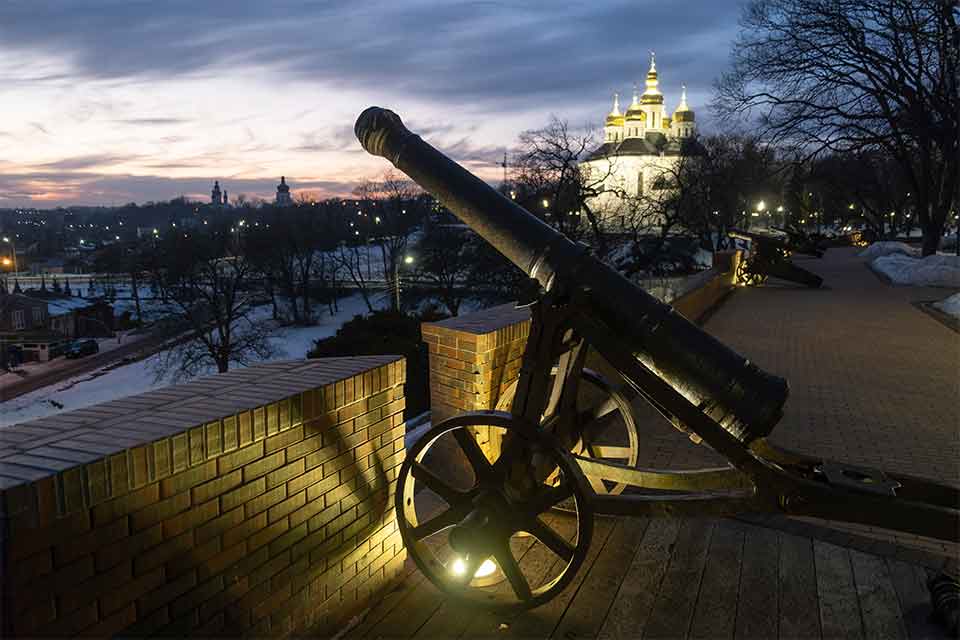
The restored medieval ramparts, I notice, are pockmarked with recent shellfire.
Natalia looks to be in her fifties or sixties, with short, blonde-gray hair. She offers to give me a tour, happy for an opportunity to practice her English.
At length, she fills me in on Chernihiv’s past: how the city was founded by the Eastern Slavic tribes in the ninth century; how it came under the rule of the Kievan Rus and was later sacked by the Mongols; how it was absorbed into the Duchy of Lithuania and afterward into the Poland-Lithuanian Commonwealth; the establishment of a Cossack state in the seventeenth century and the uprisings that helped bring an end to Polish rule; and how the city, along with most of Ukraine, subsequently fell under Russian control. She could have gone on: how it endured the turmoil of the Russian Civil War, the devastation caused by the Ukrainian famine, the ravages of the Second World War, the repression and deprivation of the Soviet era . . .
We come to a stop beside a gallery of the city’s most notable residents. Among them is Taras Shevchenko, the father of Ukrainian literature, who lived here for a time. Like the Korzeniowskis, he too would be exiled for his pro-independence activities. There is no mention of Conrad, however.
“He was here only a year,” says Natalia. “He was a boy at the time.”
I ask why there is not more recognition of him in Ukraine, given his global fame as a writer?
“He was a Catholic,” she says. “He was a Pole.”
But he was born on Ukrainian soil, I say. So, doesn’t that make him a Ukrainian?
“Partially,” Natalia says.
To paraphrase Captain Marlow in Lord Jim, he was partially one of us.
* * *
For centuries Ukraine has sought a national identity of its own. Its very name, a Slavic word meaning “borderland,” hints at an indefinite past. Caught in the crosshairs of empires, its people have faced subjugation and assimilation, be it at the hand of the Soviets or the czars, or by the various empires that preceded them. Putin has used this historical ambiguity to justify his war of aggression, invariably describing a modern Ukrainian identity as a fabrication, a Western plot to divide the Russian people.
Yet since the Maidan protests in 2014, Ukrainians’ sense of national identity has only grown. It is evident in the fact that many of Ukraine’s Russian speakers now choose to communicate in Ukrainian and not their mother tongue. It is evident by the Ukrainian national dress proudly displayed in every museum I visit, in the prevalence of national flags flown in public spaces.
“We want people to know we’re not Russians,” Natalia tells me. “That we have our own culture, our own history, one that is older than Russia’s.”
An ethnic Pole, therefore, who wrote novels in English and died a hundred years ago, does not easily fit in. Or so it appears to my Western eyes.
On the topmost floor of the museum is an exhibit documenting the siege of Chernihiv. Spent shells and rocket debris fill up the parquet floor, while photos of ruined homes line the wall. A video installation presents footage of rolling Russian tanks and apartment buildings rocked by missile blasts.
Given the Korzeniowskis’ persecution by Russia, and the destruction it has unleashed upon Ukraine, I ask Natalia if she thinks Russia has ever changed: Is it imperialist by nature? But Natalia, teary-eyed from watching the video, resists my attempt at a neat parallel.
“I can’t speak about Russian mentality,” she says. “I cannot understand their mentality. They say we are neighbors, we are brothers. Then why do they try to dominate us?”
* * *
Released from exile, Apollo and Conrad left Chernihiv for Lviv, in what was then the Austro-Hungarian province of Galicia. After the repressive atmosphere of czarist Russia, Lviv—or Lemberg as it was then called—must have felt like a haven, as it would for millions of Ukrainians fleeing Russian aggression a century and a half later.
Two years ago, the city’s baroque railway station was filled with refugees, surrounded by their suitcases and pets. Today Lviv feels deceptively ordinary. Only the sheet metal protecting church windows and the occasional air-raid alarm remind you this is a country at war. Even the solemn tones of a funeral procession, marking the loss of yet another soldier, have, tragically, become part of the fabric of everyday life.
Though father and son would remain in Lviv a year, their reprieve was short-lived, for the disease that had claimed Conrad’s mother was now consuming his father.
“I am broken,” Apollo would write. “Fit for nothing. Too tired to even spit on things.”
Despite undergoing a four-month cure in the countryside, Apollo would succumb in Kraków on May 23, 1869. He is buried in the city’s Rakowicki Cemetery. His tombstone reads:
To the Man who Loved his Homeland,
laboured for it, died for it—his compatriots.
Apollo Korzeniowski—victim of Russian Tyranny.
Thereafter, Conrad was placed in the care of his mother’s brother, the practical-minded Tadeusz Bobrowski, who would become his guardian and sponsor. After a second stay in Lviv, at a pension for orphans, Conrad would pass the remainder of his childhood in Kraków, where he continued his studies while formulating a plan of escape. At the age of sixteen, and with the reluctant permission of Uncle Tadeusz, he would leave Galicia for Marseilles, where, equipped with fluent French, he planned to become a sailor—an unlikely career choice for someone who had, until then, little contact with the sea, but perhaps an obvious one for a young man without a land to call his own.
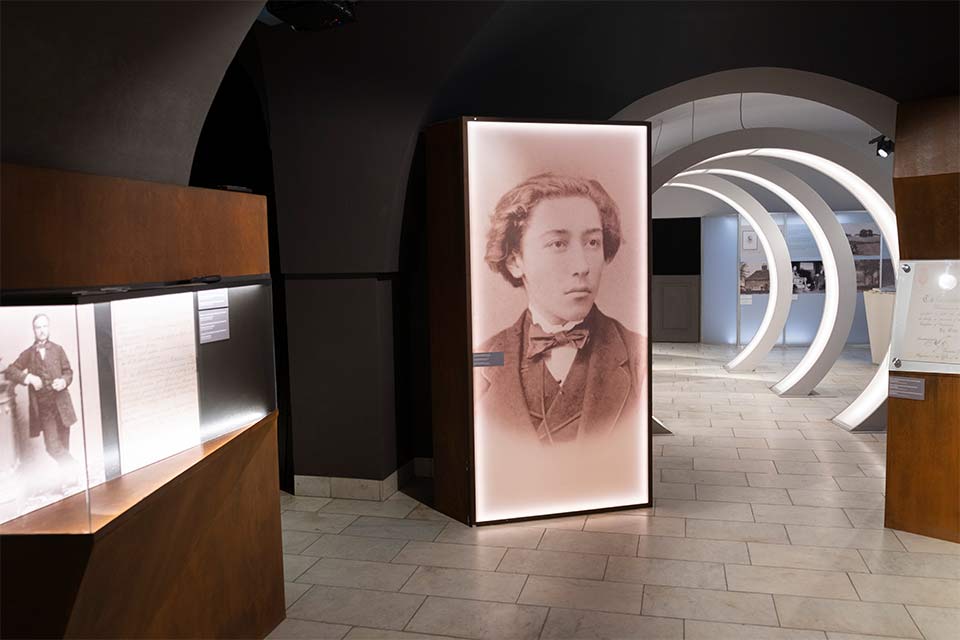
Fluent in French, Conrad planned to become a sailor—an unlikely career choice for someone who had, until then, little contact with the sea.
Along with three million Poles, he would escape the reach of the Russian Empire, just as some six million Ukrainians have now fled across Europe. It would be another twenty years before he would return, by which time he was no longer a subject of the Russian czar but of the British queen.
An alien for much of his life, Conrad would find his place, if not quite as an Englishman of letters—he remained too patriotic a Pole for that—then as a man of English letters.
After many struggles, Ukrainians have also found their place. Now they are fighting to keep it.
Chiang Mai, Thailand
